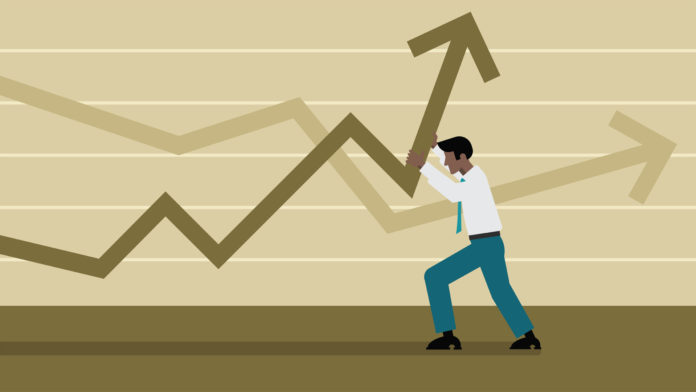Economics is called ‘the dry science’, mostly because it looks at financial decisions and pricing activity from a purely numbers perspective. Back in May, I wrote an article on inflation: https://globallibertymedia.com/inflation/ . While that article explains the economic definition of inflation, and the predictions stated there have unfortunately come to pass, I’d like to expound a bit on the human side of inflation, delving into why inflation is known as a ‘tax on the lower classes’. Let’s dig.
The bare bones definition of inflation is that the purchasing power of each dollar is less than before. What formerly cost $4 now costs $5. If you don’t have a larger quantity of dollars, the purchasing power of your family just decreased. If inflation rises quickly over a short time span (like recently), the impacts to those at the lower end of the income scale get hammered by it, more so than higher income levels. Why? Because at lower income levels, a larger percentage of income goes to basic necessities already—there is little or no ‘extra cash’ to save, or apply to unplanned purchases (medical, automotive, etc.). While the definition of ‘necessities’ varies greatly from one household to another, in the lower income rungs, that variance is almost negligible. Housing, transportation, and food comprise a HUGE percentage of such incomes, with very little ‘extras’ that higher income levels spend. Vacations, luxuries, entertainment, and the like are simply not factors for many lower income consumers—unless they have the ability to borrow (charge) for them, which becomes its own financial albatross to them. With most of their income tied up in day-to-day needs, rising prices for those needs (without a commensurate rise in income) doesn’t mean a decrease or delay in optional spending—it means choosing which essential purchases take priority over other ones. It is not a choice of taking a vacation vs not, or whether to buy an expensive gift vs not, it is frequently deciding which necessity to skip. Housing is normally a fixed expense, either rent or house payment, so that may be paid late, but avoiding payment isn’t usually an option. Eviction is a real possibility. Transportation costs can be minimized by eliminating non-necessary trips, but higher gas prices can be a significant hurdle. Food purchases are the quickest to change, scaling back to bare essentials. Those with young children (too young to understand what is going on), do their best to maintain their kids’ happiness, but many are not capable of doing so. Insurance premiums, if policies exist at all, can take a back seat to other priorities, leaving families with even more financial risk.
Let’s use gasoline prices as an example. While driving habits are all over the map, with some families using public transportation more than individual autos, a price change can be illustrative of the impact of lower income levels vs upper. Let’s establish some baseline numbers: let’s assume 1,000 miles driven per month, and 20 mpg on average. That equates to an average of 40 gallons per month. When gas is $2 per gallon, that is $80/month. At $3 per gallon, that bumps to $120 per month. Where does that additional $40 come from? For middle and upper class incomes, that is an irritant, but mostly just an inconvenience. But for lower class incomes, that $40 is squeezed out of other spending. $40 per month equates to $480 per year, all other things constant. Nearly $500 per year is quite a larger percentage of someone earning $30K vs someone earning $100K. The point being that the additional $500 per year is an added cost to doing nothing different, just more overhead to doing what was done before. Adding insult to injury, many lower income folks use their vehicles MORE than others, as they live in more modest housing, usually farther away from jobs (I know—I’m making HUGE generalizations here), and their vehicles tend to be older, so their gas mileage can be less.
The scary part: with true inflation, it isn’t just one commodity with higher prices, it is all of them. Food, gasoline, electricity, heating oil, you name it—all prices rising faster than incomes. So the squeeze comes from ALL directions, not just one. It doesn’t take much analysis to see the impact on families that do not have much financial resources to begin with—it’s not like they were living a life of extravagance BEFORE the price increases.
The only positive to inflation, if there is one: debt costs are less significant, as each dollar is worth less. On the flip side, it hits those with savings, and those with fixed incomes hardest, for the same reason. You were a responsible consumer, and saved $X for retirement? Now that entire bank account is worth less. You are on Social Security, getting $Y per month benefit? That amount simply doesn’t go as far as before. Many people did both, saving for retirement their entire working lives, but relying on SS. Shame on them for planning so well. So, yes, inflation hits all of us, but the lower income levels absorb more body blows than the rest of us—many get the full knockout.
Thank you for taking the time to read my article! Feel free to add comments (good or bad) in the box below. In addition, there is a link at the bottom of the article to view other items I’ve written at Global Liberty Media. Enjoy!

























